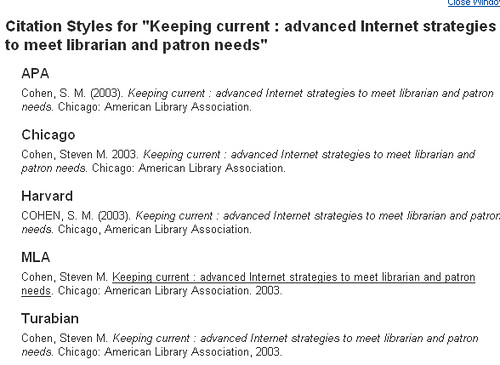I started blogging perhaps because I just wanted to investigate something new in the online scene. It is now such a widespread phenomenon that this month there is even an International Conference on Weblogs and Social Media with the following areas of interest:
The conference aims to bring together researchers from different subject areas (e.g., computer science, linguistics, psychology, statistics, sociology, multimedia and semantic web technologies) and foster discussions about ongoing research in the following areas:
- AI methods for ethnographic analysis through social media.
- Blogosphere vs. mediasphere; measuring the influence of blogs on the media.
- Centrality/influence of bloggers/blogs; ranking/relevance of blogs; web pages ranking based on blogs.
- Crawling/spidering and indexing.
- Human Computer Interaction; social media tools; navigation.
- Multimedia; audio/visual processing; aggregating information from different modalities.
- Semantic analysis; cross-system and cross-media name tracking; named relations and fact extraction; discourse analysis; summarization.
- Semantic Web; unstructured knowledge management.
- Sentiment analysis; polarity/opinion identification and extraction.
- Social Network Analysis; communities identification; expertise discovery; collaborative filtering.
- Text categorization; gender/age identification; spam filtering.
- Time Series Forecasting; measuring predictability of phenomena based on social media.
- Trend identification/tracking.
- Visualization, aggregation and filtering.
Perhaps its time I took it more seriously.

